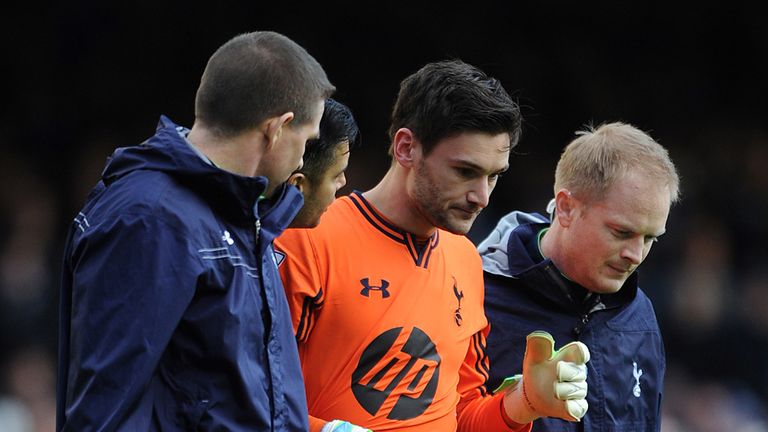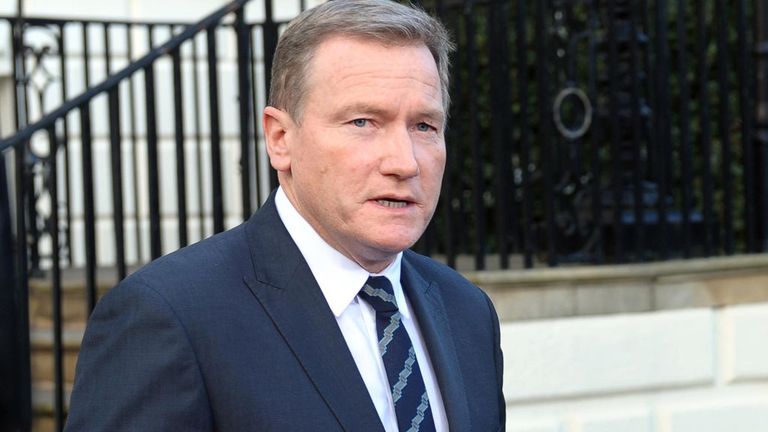FA issues new guidelines for players suffering concussion
Tuesday 24 November 2015 13:54, UK
The Football Association has issued new guidelines for dealing with concussion.
Tottenham goalkeeper Hugo Lloris continued to play on in their Premier League game with Everton in November 2013 after receiving treatment for a head injury.
The decision was criticised at the time, with France international Lloris admitting afterwards he should have been substituted.
The Premier League subsequently issued new guidelines for dealing with players suffering from concussion and the FA - using the tagline 'If in doubt, sit them out' - has now followed suit.
New recommendations state a player who has sustained a suspected concussion, either during training or in a game, should leave the pitch immediately.
They will not be allowed to return until they have received proper treatment, having undergone a 'return to play protocol', similar to that used in rugby union.
The advisory guidelines have been designed to assist those who manage head injuries in professional and grassroots football - from clubs and schools, to parents and doctors.
The guidance is based on evidence and best practice from around the world, and includes key information on how a concussion should be managed from the time of injury through to a player's safe return to football.
Dr Ian Beasley, The FA's head of medical services, believes the guidelines will be crucial in ensuring effective management and care of head injuries across football in England.
"The paramount priority for The FA is player safety, and so the publication of these concussion guidelines is integral to achieving an unprecedented high level of care and safety for players at all levels," he said.
Dave Reddin, The FA's Head of Performance Services, insists the new measures prioritise the wellbeing of the player above all other considerations.
"I am confident practices are already improving and particularly at grassroots level, these guidelines will help give clear advice on how to manage concussion when it occurs," he told Sky Sports News HQ.
"As we have seen in other sports, practice will improve over time and that will be a combination of education and probably, in the longer term, regulation.
"These guidelines are all about player safety. We hope through the guidelines coming out and the continuing education programmes within football, that there will be an increased recognition that the decision taken has to be solely to do with the health and safety of the player.
"At times people become competitive and other agendas come in but when there is a head injury, there is no doubt there must be no risks taken."
The League Managers' Association are one of the relevant parties consulted over the new guidelines and their chairman, Richard Bevan, fully supports them.
"We are pleased to support The FA's Concussion Guidelines, as the physical wellbeing of football's participants must always be a priority for us all working in the game," he said.
The guidelines were developed in consultation with The FA's Expert Panel on Concussion and Head Injury after it was set-up in April 2015 and tasked with advising the organisation on issues surrounding concussion.




